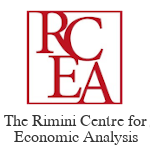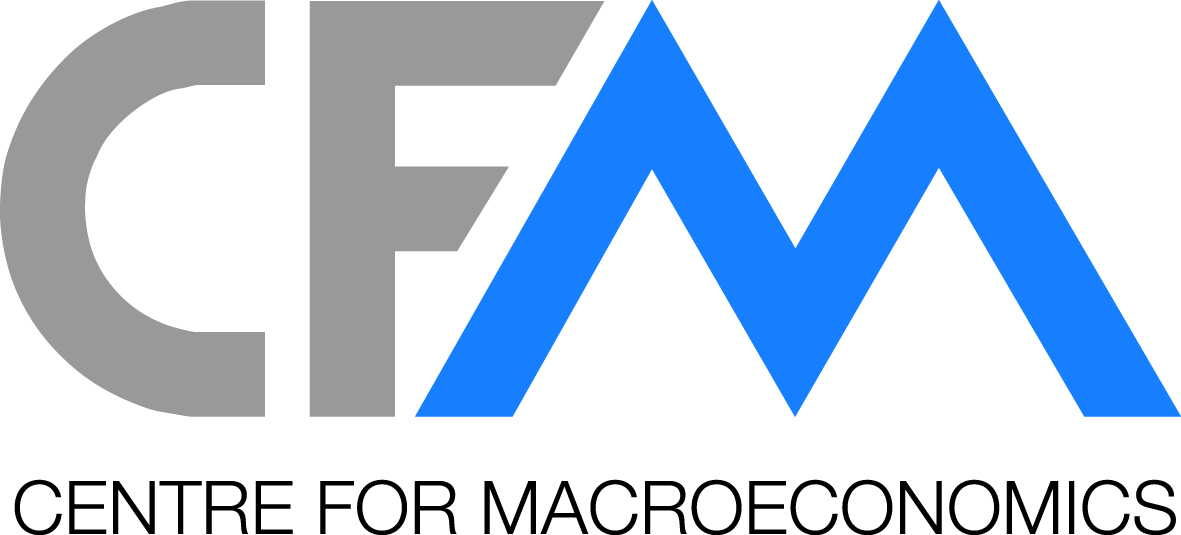International Workshop
Macroeconomic Regime Changes: Theory, Evidence, and Policy Challenges Ahead
CefES International Workshop
Friday 1 December - Center for Macroeconomics, London School of Economics
Workshop Description
The Great Moderation, a benign macroeconomic regime lasting over 40 years in industrialized countries, might be over. The Global Financial Crisis (GFC) and ensuing Great Recession initially, the COVID-19 pandemic recession, and the geopolitical crisis triggered by Russia’s full-scale invasion of Ukraine more recently, have likely started a reversal in the favorable supply-side developments that had a key role in the Great Moderation. Hence, key questions concern the characteristics of the new macroeconomic regime lurking ahead. Is the new regime ahead inflationary or even stagflationary? The reversal in the past favorable demographic trends and the ongoing de-globalization reducing international trade and technological, capital, and migratory flows, are potential sources of inflationary pressures, and further pressures might originate from a persistent worsening in climatic conditions. Is the new regime going to be characterized by a higher natural interest rate? The potential decumulation of savings in the face of increased investment in the new regime might trigger such an outcome, also ending secular stagnation-kind distortions which have emerged since the GFC. Will the current productivity slowdown persist in the new macroeconomic regime? The productivity slowdown in advanced countries started in the 1990s and has deepened since the GFC. Several explanations have emerged, ranging from the exhaustion of the technological frontier to the delayed manifestation of the benefits of GPT innovations, and secular stagnation distortions, to name a few. This question is key also concerning the type of economic policies that should be implemented in the new macroeconomic regime. In this respect, what are the policy challenges ahead? The emergence of an inflationary bias yields an increased likelihood of wage-price spirals and the risk of deanchoring agents' expectations and undermining central bank credibility. In this context, central banks will also have to trade off higher inflation for higher financial stability, as monetary tightening, by rising debt servicing costs, might trigger financial disruptions in the private and public sectors. Other concerns include the nexus between fiscal policy and financial stability, the debt trap, and shaping supply-side policies to contrast stagflation pressures by promoting economic growth, technological innovation, and market competition.
Against these scenarios, the workshop gathers academics and policymakers to discuss recent scientific results concerning the end of the Great Moderation, the emergence of a new macroeconomic regime, and the associated challenges for economic policy. Topics of interest, without being exhaustive, concern inflation and stagflation, globalization and de-globalization, the slowdown in productivity growth, demographic and labor market trends, macroeconomic regimes and the financial-business cycle nexus, macroprudential and resilience policies, fiscal and monetary policy in a time of crisis, fiscal policy and financial stability, disinflationary supply-side policies and supply-side growth policies.
Charles Goodhart, CBE, FBA, Emeritus Professor of Banking and Finance with the Financial Markets Group at the London School of Economics will present a keynote talk on “Beyond the Great Moderation: Evidence and Policy Challenges".
Event Information
Date
Friday, December 1, 2023
Location
Center for Macroeconomics, London School of Economics
Organizers
- Pierpaolo Benigno (University of Bern, RCEA)
- Marcelle Chauvet (University of California-Riverside, RCEA)
- Claudio Morana (CefES, RCEA, University of Milano-Bicocca)
- Ricardo Reis (CFM, London School of Economics)
- Patrizio Tirelli (University of Pavia, CefES, RCEA)
The workshop features an open SI of the European Economic Review on Macroeconomic Regime Changes: Theory, Evidence, and Policy Challenges. Guest editors: P. Benigno, C. Morana, R. Reis, and P. Tirelli.
The SI opens (closes) submissions on December 15, 2023 (April 15, 2024).
Final decisions will be made on all manuscripts by October 15, 2024.
Further information will be made available at: https://www.sciencedirect.com/journal/european-economic-review/about/call-for-papers
For any information request, please contact us at: cefes@unimib.it
Friday, December 1, 2023
8:55 am Welcome remarks: Ricardo Reis (London School of Economics), Claudio Morana (University of Milano-Bicocca)
9:00 am Keynote session.
Chair: Silvana Tenreyro (London School of Economics and Political Science)
Charles Goodhart (London School of Economics and Political Science): Beyond the Great Moderation
10:00 am coffee break
10:10 am Session 1: Energy and climate shocks.
Chair: Patrizio Tirelli (University of Pavia)
- Anton Nakov (European Central Bank), Carlos Thomas (Bank of Spain): Climate-Conscious Monetary Policy
- Enisse Kharroubi (Bank for International Settlements) and Frank Smets (European Central Bank, Ghent University and Bank for International Settlements): Monetary and Fiscal Policies with Profit-Driven Inflation
11:30 am coffee break
11:50 am Session 2: Inflation regimes and risk.
Chair: Charlie Bean (London School of Economics and Political Science)
- Jens Hilscher (University of California Davis), Alon Raviv (Bar-Ilan University), and Ricardo Reis (London School of Economics and Political Science): How likely is an Inflation Disaster?
- Oliver Pfauti (University of Bern and University of Texas at Austin): The Inflation Attention Threshold and Inflation Surges
1:10 pm Lunch
2:00 pm Session 3: Nonlinearities in inflation and the Phillips Curve.
Chair: Gertjan Vlieghe (Millenium)
- Pierpaolo Benigno (University of Bern) and Gauti B. Eggertsson (Brown University): It’s Baaack: The Surge in Inflation in the 2020s and the Return of the Non-Linear Phillips Curve
- Simon C. Smith (Federal Reserve Board), Allan Timmermann (University of California San Diego), and Jonathan H. Wright (Johns Hopkins University): Breaks in the Phillips Curve: Evidence from Panel Data
3:20 pm coffee break
3:40 pm Session 4: Underlying inflation.
Chair: Stephen Cecchetti (Brandeis University)
- Andrea De Polis (University of Warwick), Leonardo Melosi (University of Warwick and Federal Reserve Bank of Chicago), and Ivan Petrella (University of Warwick): Macroeconomic Drivers of the Balance of Inflation Risks
- Claudio Morana (University of Milano-Bicocca): Euro Area Inflation and a New Measure of Core Inflation
5 pm End of the workshop
Submissions
Authors interested in presenting their research at the workshop should submit their papers by filling out the Google form. The deadline for submission is Friday, 20 October 2023. Authors of accepted papers will be notified of acceptance by Friday, 27 October 2023. Participation in the workshop is free. Limited refunding of traveling expenses is available for presenting authors.
Registration
Auditors can follow the event for free both in-person and online through Zoom.
Please confirm that you are participating IN-PERSON by 16 November. Participation is free; please help us to best manage catering purchases.
IT Facilities at LSE
Wi-Fi is available for guests and visitors in association with 'The Cloud', also in use at many other locations across the UK. you can connect your device to wireless. See more information and create an account at Join the Cloud. Visitors from other participating institutions are encouraged to use eduroam. If you are having trouble connecting to eduroam, please contact your home institution for assistance.
Collaborations
The workshop is jointly organized by:
Presentations and Recorded Sessions
Keynote session
Charles Goodhart (London School of Economics and Political Science): Beyond the Great Moderation - Presentation
Session 1: Energy and climate shocks
Anton Nakov (European Central Bank), Carlos Thomas (Bank of Spain): Climate-Conscious Monetary Policy - Presentation, Paper
Enisse Kharroubi (Bank for International Settlements) and Frank Smets (European Central Bank, Ghent University and Bank for International Settlements): Monetary and Fiscal Policies with Profit-Driven Inflation - Presentation
Session 2: Inflation regimes and risk
Jens Hilscher (University of California Davis), Alon Raviv (Bar-Ilan University), and Ricardo Reis (London School of Economics and Political Science): How likely is an Inflation Disaster? - Presentation, Paper
Oliver Pfauti (University of Bern and University of Texas at Austin): The Inflation Attention Threshold and Inflation Surges - Presentation, Paper
Session 3: Nonlinearities in inflation and the Phillips Curve.
Pierpaolo Benigno (University of Bern) and Gauti B. Eggertsson (Brown University): It’s Baaack: The Surge in Inflation in the 2020s and the Return of the Non-Linear Phillips Curve - Presentation, Paper
Simon C. Smith (Federal Reserve Board), Allan Timmermann (University of California San Diego), and Jonathan H. Wright (Johns Hopkins University): Breaks in the Phillips Curve: Evidence from Panel Data - Presentation, Paper
Session 4: Underlying inflation
Andrea De Polis (University of Warwick), Leonardo Melosi (University of Warwick and Federal Reserve Bank of Chicago), and Ivan Petrella (University of Warwick): Macroeconomic Drivers of the Balance of Inflation Risks - Presentation
Claudio Morana (University of Milano-Bicocca): Euro Area Inflation and a New Measure of Core Inflation - Presentation, Paper




